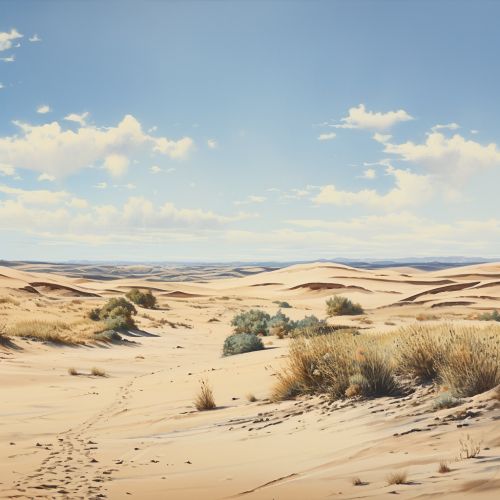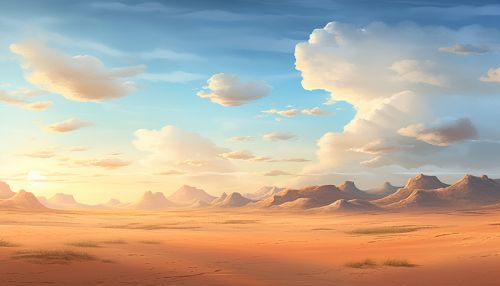Libya
Geography
Libya, officially known as the State of Libya, is a country located in North Africa. Bordered by the Mediterranean Sea to the north, it shares land borders with Egypt to the east, Sudan to the southeast, Chad and Niger to the south, and Algeria and Tunisia to the west. With an area of almost 1.8 million square kilometers, Libya is the fourth largest country in Africa, and the 16th largest in the world.


The Libyan landscape is primarily made up of arid desert and semi-desert. The country's northern coastline, stretching over 1,770 kilometers, is the longest of any African country bordering the Mediterranean. The coastal areas enjoy a Mediterranean climate, with hot, dry summers and mild, wet winters. The interior, however, is characterized by extreme desert conditions with significant temperature variations and scarce rainfall.
History
The history of Libya spans thousands of years, with the region being inhabited by Berber tribes since at least 8000 BC. The area was later conquered by a series of empires, including the Phoenicians, the Carthaginians, the Romans, the Byzantines, and the Ottomans.
In the 20th century, Libya was colonized by Italy and later became an independent kingdom in 1951. The discovery of significant oil reserves in the late 1950s transformed the country's economy. In 1969, a military coup led by Muammar Gaddafi overthrew the monarchy, and Gaddafi ruled as a dictator until he was overthrown and killed in the 2011 Libyan Civil War.
Politics
Libya is a semi-presidential republic with a multi-tiered government structure that includes national, regional, and local levels of governance. The country's political system has been in a state of flux since the 2011 revolution, with various factions vying for control.
The General National Congress (GNC) was elected in 2012 to form a temporary government and draft a new constitution. However, the GNC's mandate was extended beyond its original deadline, leading to a political crisis and the outbreak of a second civil war. As of now, the country is split between two rival governments, the House of Representatives in Tobruk and the new GNC in Tripoli.
Economy
Libya's economy is heavily dependent on the oil sector, which contributes to most of its revenue and gross domestic product (GDP). The country has the largest proven oil reserves in Africa and is a significant contributor to the global supply of light, sweet crude.
However, political instability and security issues have greatly affected the country's economic stability. The oil sector has been particularly hard hit, with production levels falling significantly. Despite these challenges, Libya has a high GDP per capita compared to other African countries, due to its small population and significant oil wealth.
Culture
Libyan culture is a blend of its indigenous Berber, Arab, African, and Mediterranean influences. The country's rich history is reflected in its architecture, cuisine, music, and festivals.
The official language is Arabic, and the majority of the population identifies as Muslim. Islam plays a significant role in the cultural and social life of the country. Traditional Libyan music and dance are heavily influenced by Bedouin traditions and African rhythms.
